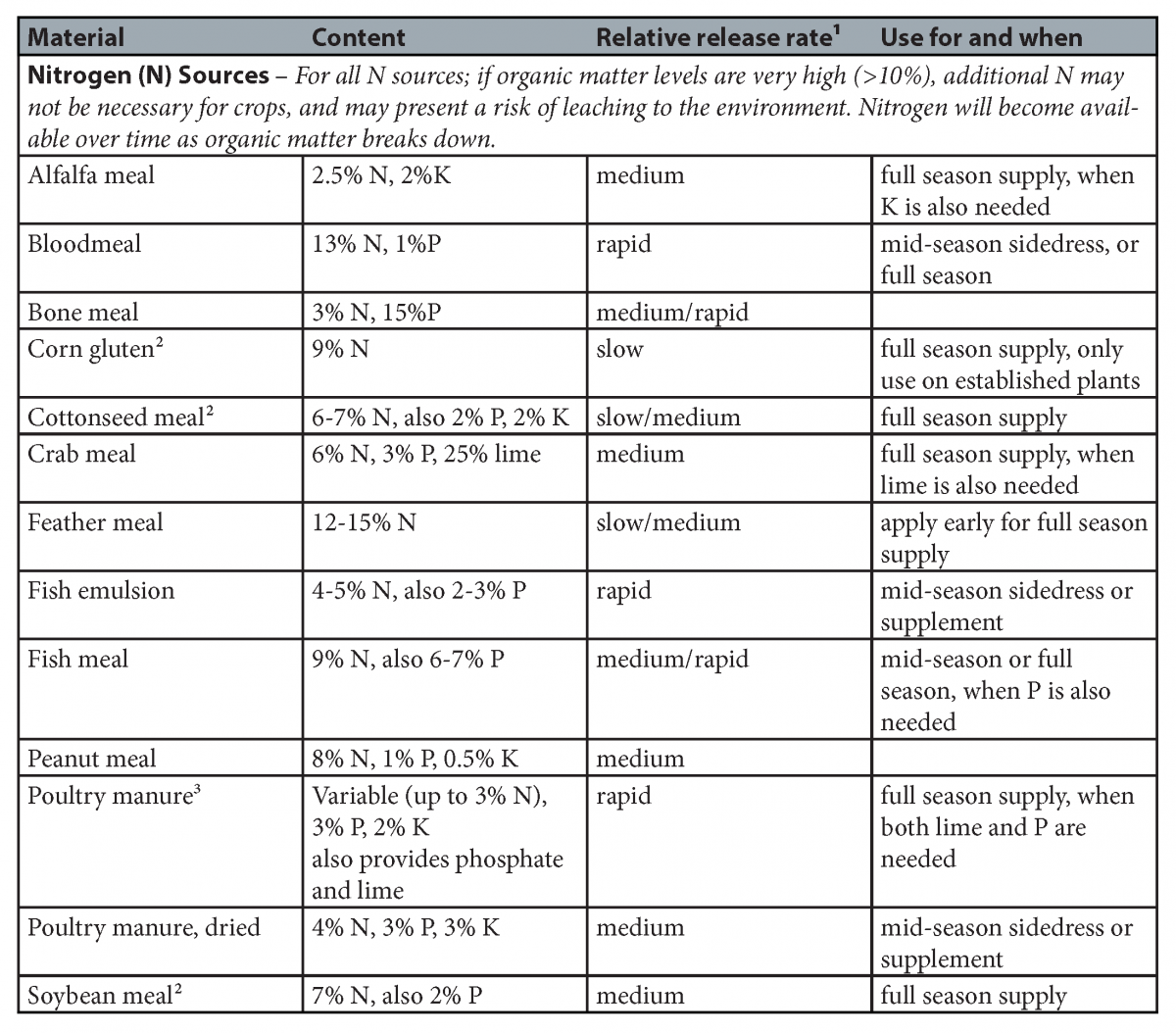This Factsheet is to help home gardeners identify organic nutrient sources for use in their gardens. Use the chart to locate specific plant-based nutrients and apply only if needed – at rates recommended by your soil test report.


1 Even materials with rapid release require at least a few days or weeks under ideal conditions to become available for plant uptake. Under warm conditions, release rates are faster. Medium release rates should become available over a few months. Slow releasing materials will provide nutrients over several years from one application, but will not be useful for short term corrections.
2 Not all sources are certified for organic production, check with your certifying agency if you are a certified organic grower.
3 Poultry manure does provide some limestone, but its effects on soil pH is highly variable.
4 Fresh manures and vegetable gardens do not mix. There is high risk of microbial contamination if you apply uncomposted manures into your garden. If you plan to use animal manure, we recommend composting the manure first and aging the compost for at least six months before incorporating it into soil, or tilling in fresh manure and planting a cover crop, such as oats or winter rye. The cover crop will hold nutrients and prevent soil erosion.
Composts and manures are highly variable in nutrient content, and rarely have the appropriate nutrient balance to supply all your garden needs. Refer to our fact sheet, Guidelins for Using Manures & Manure-Based Composts in the Garden.
Source: 2012-13 New England Vegetable Management Guide
Maine Soil Testing Service, University of Maine
Download the Resource for the complete fact sheet and a printable version.


